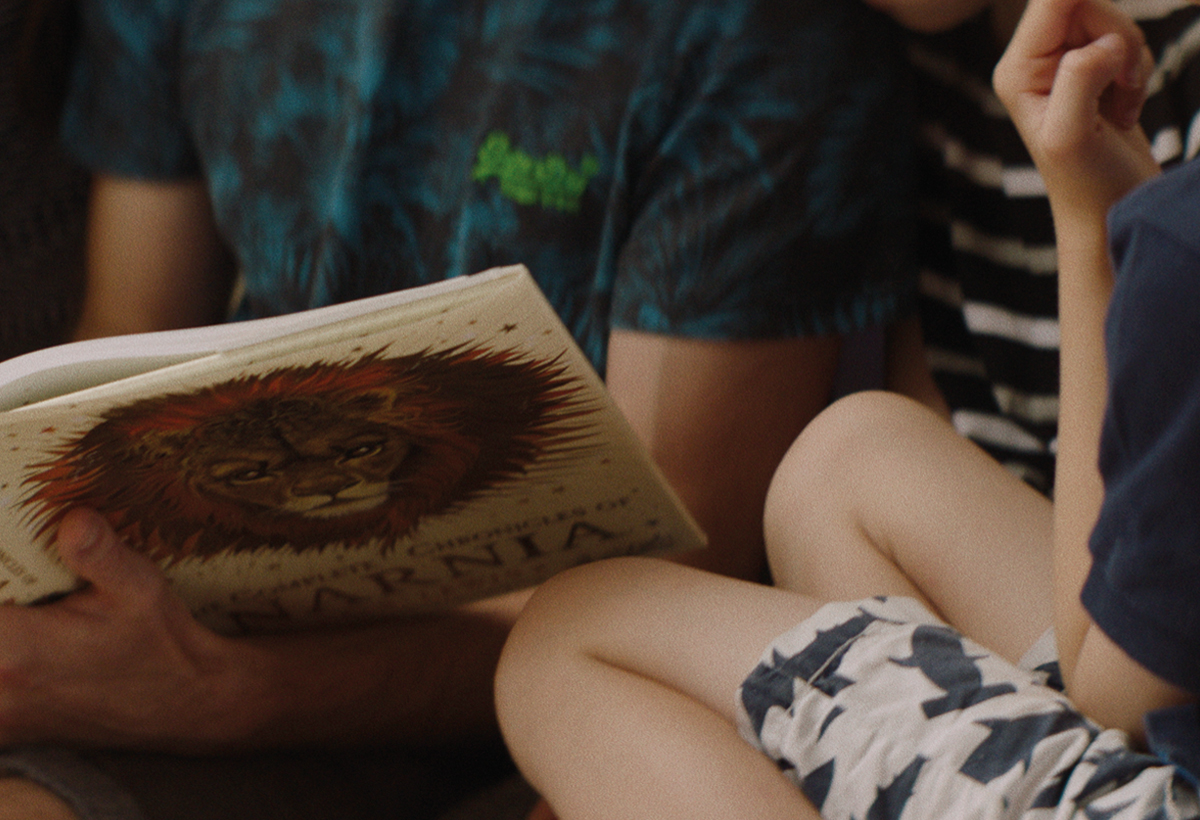
I still remember sitting on the blue chair in our living room at Christmas when I was six years old, tearing the wrapping paper off the largest, heaviest book I had ever held in my hands. The cover was golden brown and green and spread with a spidery map, adorned with little scenes in which girls and boys stood alongside winged horses and bearded dwarfs. From the top corner the dark face of a lion stared out at me.
I remember looking up at my mum and asking in amazement what this book was.
I had never heard of the Chronicles of Narnia before, but this treasury edition would become one of my most prized possessions. It is a beautiful book, with glossy pages and coloured borders and a gold ribbon to mark the page. And it turned out that the stories contained within it were equally beautiful.
There are a few significant books from my childhood which feel like part of me, because they formed my imagination and my love of language when I was very small. Both their words and their illustrations still live in my head. Of these books I think Narnia was the most significant. It wasn’t just the language or the pictures or the plots (though I loved all of these). It was the symbolism. The stories are about Christ and the Christian life. They made me reflect on my own faith as I understood it.
Of course, I didn’t catch all the symbolism when I was six. I realised early on that Aslan represented Jesus, but the rest came upon me gradually. I shouldn’t think there were many years of my childhood when I didn’t reread at least one of the Narnia stories. Even as a student, when I came home for Christmas or Easter, I would snuggle up with the old treasury edition, fiddle with the gold ribbon, and enjoy the familiar narratives and pictures.
C.S. Lewis’ stories gave me a framework to ask questions about what I believed. As a child I wondered what heaven would be like, worrying that it would be one huge but very crowded room, or an eternal, exhausting school disco. But in The Last Battle, the heaven the characters find themselves in is a more vivid, more perfect, more “real” version of the Narnia they have always known, with all its mountains, trees and quiet places. “I have come home at last,” says Jewel, the unicorn. Reading this, I began to hope for an eternity that was truly good. Sure enough, I later discovered that the Bible really does promise a new heaven and a new earth.
Other times I would experience things in my Christian life which I was able to make sense of because of the way C.S. Lewis had depicted them. I remember a period of rapid change and growth in my life. Feeling exhausted, I thought of Eustace’s description of being painfully changed from a dragon back into a boy in The Voyage of the Dawn Treader. With sharp claws Aslan tears away the layers of dragon skin which represent Eustace’s sin. “It hurt worse than anything I’ve ever felt”, the boy explains. “The only thing that made me able to bear it was just the pleasure of feeling the stuff peel off.” I felt like that too—the pain and exhaustion of seeing more and more ways in which I didn’t measure up to God, and the joy of knowing I was being made more like him. I still sometimes visualise the illustration of the weeping, despairing dragon, when I think about sin.
The Complete Chronicles of Narnia still sits in pride of place on my bookcase. Its gold ribbon is a little frayed now. I haven’t read it in a few years. But it isn’t hard to recognise the impact it has had on me. C.S. Lewis, along with his illustrator Pauline Baynes, created an imaginative and colourful world, with characters and images that stayed in my head. They wanted to convey truth in a beautiful and memorable way, and they helped me to understand God and explore my faith.
Other books have joined these stories now in my personal store of familiar images and words—the Bible not least among them. But I don’t think anything will ever quite squeeze Narnia out.
This article is part of our Spark Wonder campaign. For many of us, a love of God’s word was sparked in childhood as the Bible and Christian books were read to us. We can ignite the spark of wonder in a child’s heart that will set them up for a lifetime of curiosity into all the things of God and His Word. Find out more here.